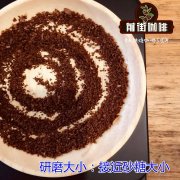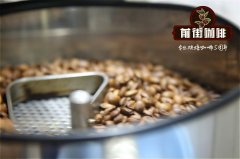How much is cat poop coffee beans per jin _ Kopi Luwak price list picture _ how long is the shelf life of cat shit coffee beans

Professional coffee knowledge exchange More coffee bean information Please pay attention to coffee workshop (Weixin Official Accounts cafe_style)
Cat poop coffee beans, Indonesia. In the early 18th century, the Dutch established coffee plantations in the Indonesian colonies of Sumatra and Java, and prohibited the locals from picking and eating their own coffee fruits. Indonesian locals accidentally discovered that civet cats love to eat these coffee fruits and will expel the beans intact when they defecate. Civets eat only the sweetest beans, which is a natural selection in itself, and second, locals have found that the beans ferment in the cat's stomach and produce coffee that tastes better than regular coffee.
The delicious cat feces coffee gradually became famous and became a hot commodity in the international market. Cat poop coffee is produced from the feces of Indonesian coconut cats (a kind of civet cat), so it is called "cat poop coffee". This kind of animal mainly feeds on coffee beans. After fermentation in coconut cat stomach, protein is destroyed, short peptides and more free amino acids are produced, the bitter taste of coffee will be reduced, and the feces discharged will be the main raw material. Since coffee beans cannot be digested, they will be excreted. After washing and baking, they become cat feces coffee.
Coffee critic Chris Rubin said,"The bouquet is so rich and intense, and the coffee is incredibly rich, almost syrupy. Its thickness and chocolate texture linger on the tongue for a long time, with a pure aftertaste.
Kopi Luwak (Indonesian for coffee), Luwak is Indonesian for a wild arboreal animal commonly known as the "Civet." In Indonesia's Sumatra region, the locals call the civet Musang rather than Luwak, and Kopi Musang is the civet coffee (also translated as Mu Shang coffee), commonly known as "cat shit coffee".
The docile civet doesn't eat all coffee beans. It chooses the most ripe, sweet, plump and juicy coffee beans as its food.
One of the world's most expensive coffees is produced in Indonesia, and in Europe and America, civet beans can even sell for $800 a kilogram, making premium coffee that costs up to $80 a cup. Lin Yijun, who roasts civet coffee beans in Indonesia, said,"The civet doesn't eat all kinds of coffee beans, it only eats good beans." Civets are equivalent to helping people pick coffee beans first, roasting coffee back to the mouth sweet, lips and teeth fragrance.
Coffee beans are popular.
According to reports,"Luwak" is commonly known as "Civet Coffee" by Indonesians. Civets are omnivorous animals, living in tropical rain forests, subtropical evergreen broad-leaved forests or hills and mountains below 2000 meters above sea level. According to some surveys, there are about 50 tons of civet coffee on the coffee market every year, all from Indonesia, Vietnam, the Philippines and China.
How is civet coffee made? Coffee fruits pass through the digestive system of the civet cat, and only the pulp of the fruit is digested, and the coffee beans are excreted intact. It is reported that this digestion process will destroy the protein in coffee beans, reduce the bitter taste of coffee, so that the taste of coffee will be richer, mellow and sweet.
Coffee is generally washed or sun, etc., to remove coffee peel, pulp and sheepskin layer, and finally remove coffee beans and made. But civet coffee is the use of animals in the body of natural fermentation process, to obtain coffee beans. Coupled with the fact that civet cats only exist on islands such as Indonesia, the mysterious time and place of their appearance, and the decreasing number, the price of civet coffee remains high.
Feeding beans has knowledge
However, the report points out that feeding civet cats to eat coffee beans is also learned. Lin Yijun, who has been roasting civets for many years in Indonesia, said that when feeding civets, coffee beans should not be fed every day, otherwise civets will have diarrhea; coffee beans are only part of civets 'meals, and they must also be fed bananas, pineapples, various fruits, and chicken, so that civets' intestinal enzymes are richer.
In fact, she said, docile civet cats don't eat all coffee beans, they pick the most ripe, sweet, juicy coffee beans as food,"civet cats are better than machines," which means they have helped people choose coffee beans once.
When it comes to savoring civet coffee, laymen should never think that "money is a master." Lin Yijun said,"People who like to drink coffee with sugar and milk don't drink civet coffee." The essence of civet coffee lies in "returning to sweetness in the mouth". Even if it enters the throat for a period of time, there will still be caramel and chocolate aroma in the mouth. This is very different from coffee with sugar and milk.
Cat poop coffee beans brand recommendations
Front Street Coffee roasts wild cat poop coffee beans with full assurance of brand and quality. More importantly, the cost performance is extremely high, a pack of 100 grams, the price is only about 250. According to the calculation of 15 powder per cup of coffee, a pack can make 6 cups of coffee, each cup only needs about 4,50 yuan, for the coffee shop sells hundreds of pieces of a cup price can be said to be extremely cost-effective.
Qianjie Coffee: Guangzhou's baking shop, small store but a variety of beans, can find a variety of famous beans, but also provide online store services. https://shop104210103.taobao.com
Important Notice :
前街咖啡 FrontStreet Coffee has moved to new addredd:
FrontStreet Coffee Address: 315,Donghua East Road,GuangZhou
Tel:020 38364473
- Prev

Indonesian cat poop coffee costs 3,000 yuan a kilogram. Where can I buy authentic Indonesian cat poop coffee beans?
Professional coffee knowledge exchange more coffee bean information please follow the coffee workshop (Wechat official account cafe_style) public bean (peaberry) is a variety of coffee beans. The common bean can be said to be a flaw in botanical theory, and there are two causes, one of which is that the coffee is damaged by insects before bearing fruit, and it may also be due to the fact that the coffee tree does not rain for a long time or the nutrition is not balanced.
- Next

Are Kopi Luwak beans fake in Vietnam? how do you brew Kopi Luwak _ Kopi Luwak price list at home?
Professional coffee knowledge exchange more coffee bean information Please pay attention to the coffee workshop (Wechat official account cafe_style) A jin of civet cat droppings can only extract 150g of cat droppings coffee beans, there will be a 20% loss in the baking process. The annual global supply of these coffee beans does not exceed 400 kilograms. So, more than 80% of Kopi Luwak on the market is fake. Musk cat coffee
Related
- Detailed explanation of Jadeite planting Land in Panamanian Jadeite Manor introduction to the grading system of Jadeite competitive bidding, Red bid, Green bid and Rose Summer
- Story of Coffee planting in Brenka region of Costa Rica Stonehenge Manor anaerobic heavy honey treatment of flavor mouth
- What's on the barrel of Blue Mountain Coffee beans?
- Can American coffee also pull flowers? How to use hot American style to pull out a good-looking pattern?
- Can you make a cold extract with coffee beans? What is the right proportion for cold-extracted coffee formula?
- Indonesian PWN Gold Mandrine Coffee Origin Features Flavor How to Chong? Mandolin coffee is American.
- A brief introduction to the flavor characteristics of Brazilian yellow bourbon coffee beans
- What is the effect of different water quality on the flavor of cold-extracted coffee? What kind of water is best for brewing coffee?
- Why do you think of Rose Summer whenever you mention Panamanian coffee?
- Introduction to the characteristics of authentic blue mountain coffee bean producing areas? What is the CIB Coffee Authority in Jamaica?

